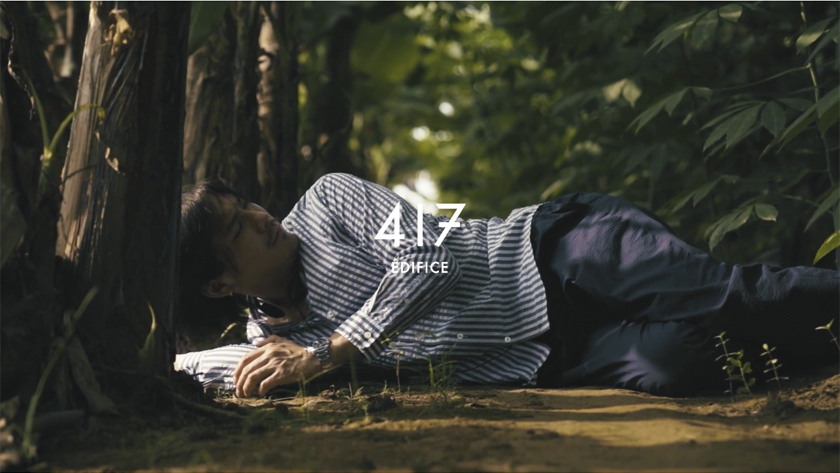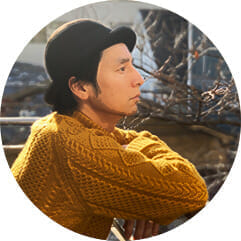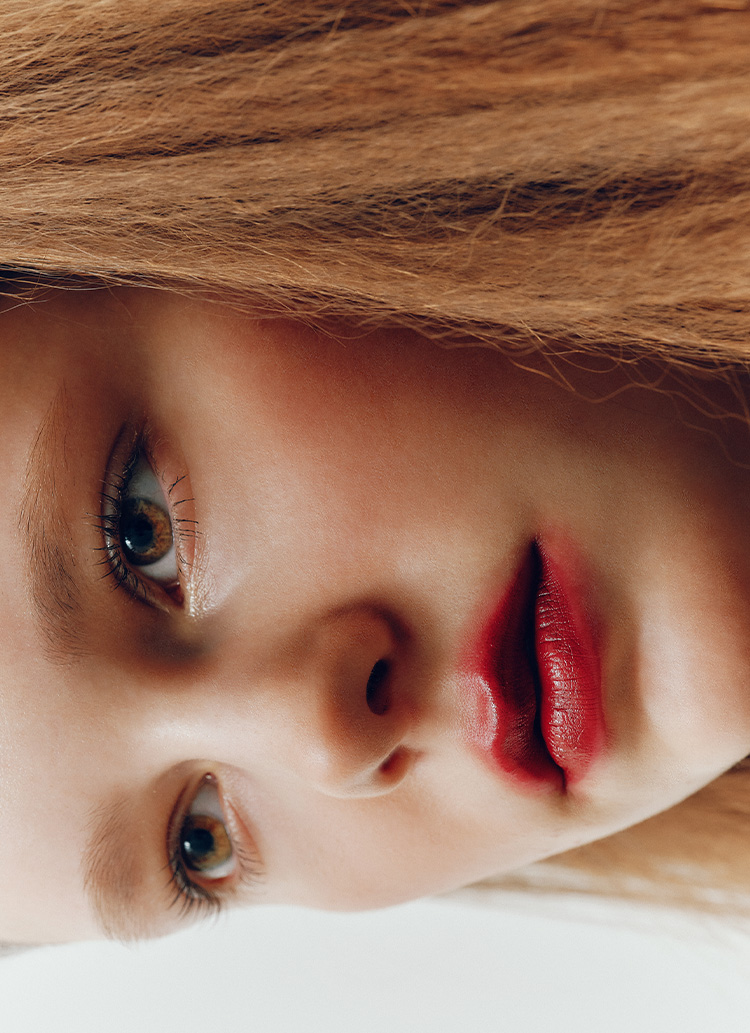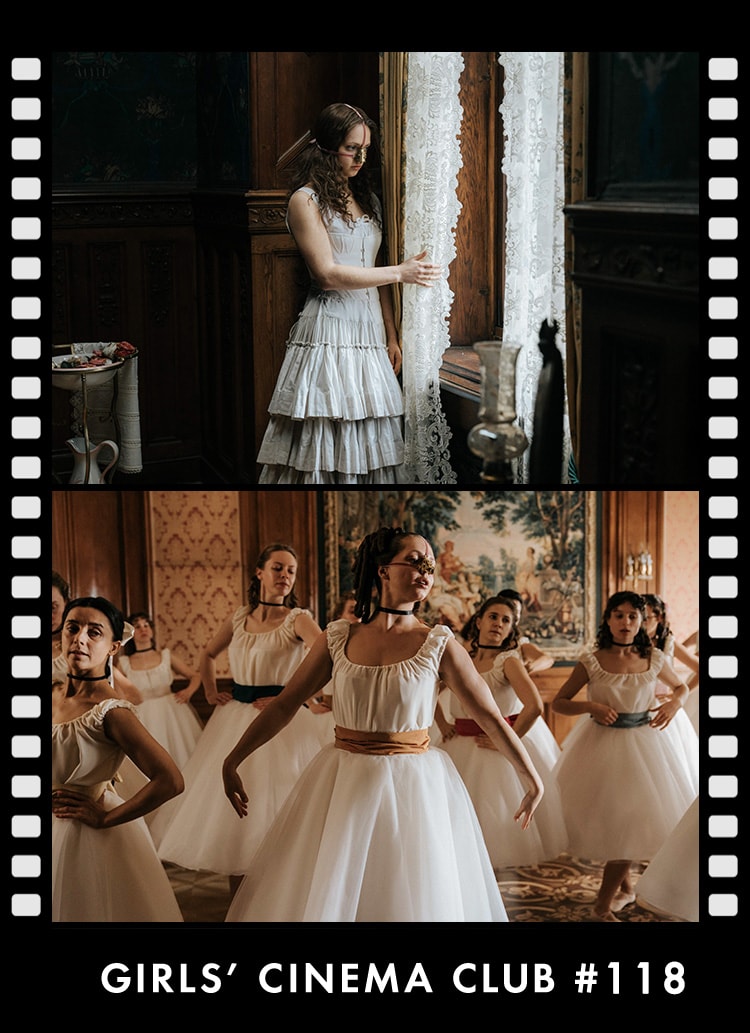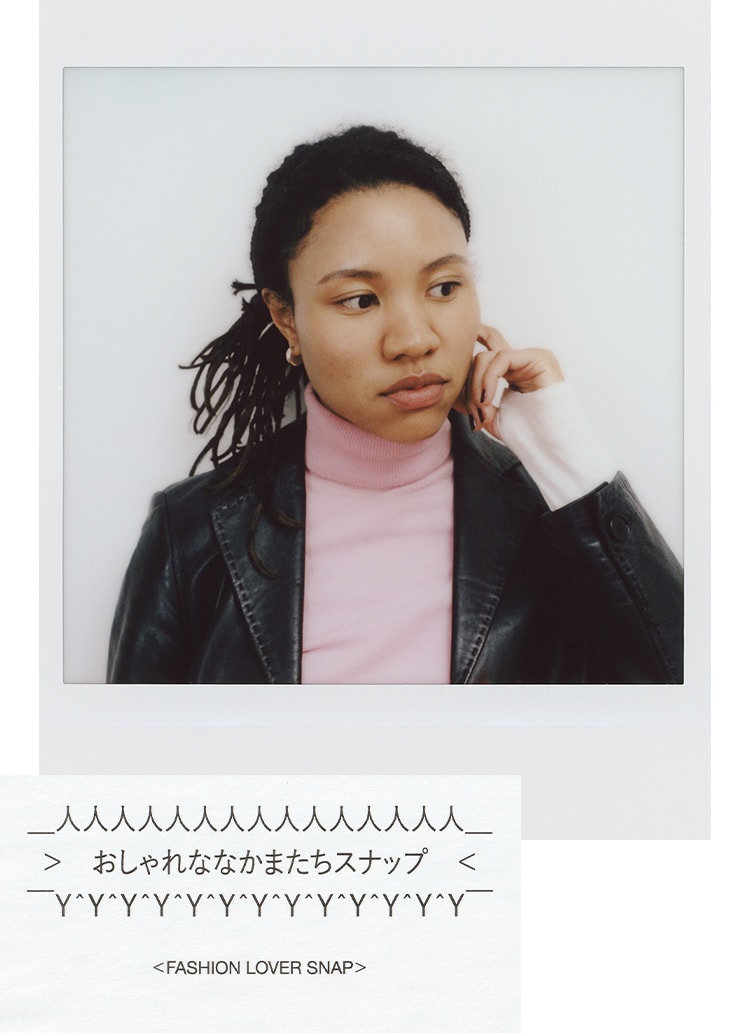Have you seen the fashion movie released the other day by the select store "417 EDIFICE," which proposes a unique style based on the concept of "French traditional worn with a youthful and free sensibility"?
This movie was shot in Vietnam under the themes of "off and on" and "rough and casual. The movie is a perfect fusion of crisp masculinity and humor mixed with an exquisite sense of relaxed power, and the viewer is drawn into the world with an indescribable sense of balance.
The production was handled by Akio Yamakawa of "EUPHORIA FACTORY" and Koichi Toya of "HUMPLAND. What were they thinking when they created the movie? We visited them to find out the source of their creativity.
Left: Mr. Koichi Toya of "HUMPLAND", Right: Mr. Akio Yamakawa of "EUPHORIA FACTORY
This fashion movie was set in Vietnam, wasn't it?
Yamakawa: The theme of this year's exhibition was "OFF and ON," and I thought that if I expressed this in Tokyo, it would simply be like "city and country" and the visuals would be somewhat conventional.
So that's why you decided it would be better to shoot overseas.
Yamakawa: That's right. However, it would be difficult to understand if we did it in the West, so our starting point was that we thought it would be possible to capture interesting images in the Asian region. I thought it would be more realistic to have Japanese people wearing lapel jackets there, drenched in sweat.
Yamakawa-san and Toya-san, do you come up with the ideas together?
Yamakawa: Yes, that's right. Toya loves Vietnam, so when I ask him for advice, he responds with ideas. I ask him, "How about this?" and he responds with ideas. He is also very reliable when it comes to locations and such.
Toya: I simply love Vietnam. So I try to promote the appeal of Vietnam and try to go there as much as possible (laughs).
All: Laughter
What is the division of roles between the two of you?
Yamakawa: I am in charge of coming up with ideas and telling Mr. Toya, "This is the kind of image I want to shoot. I come up with ideas from a creative point of view. Toya-kun actually shoots the film, and he does most of the editing, including the art direction of the finished product.
Mr. Akio Yamakawa, EUPHORIA FACTORY
What kind of communication did you have to go through in order to share the kind of image you just mentioned?
Yamakawa: The theme of this year's show is "OFF and ON," and it starts with "OFF. It starts with "OFF," which means that you can wear shorts and a T-shirt, but you can also wear a jacket over it. So, rather than preparing several coordinated outfits and changing the atmosphere, we express "OFF and ON" by taking the jacket off and putting it on. We also wanted to add the image of traveling, including the atmosphere of Vietnam, as an element.
I see. The finished movie shows alternating views of the city and nature.
Yamakawa: We were shooting based in Hanoi, but if we only shot in Hanoi, the scenery would all be the same and the picture would not change. We always do this, but once we decide on a base, we try to visit the suburbs around that base. We also do a lot of research beforehand to see what kind of locations are available.
How many days did you spend filming in Vietnam?
Totani: About a week.
Yamakawa: We did location scouting on the first day and spent the rest of the day shooting. I did a lot of research on locations while I was in Japan, but there are some things you can't know until you get there, so I tried to visit as many places as possible while still having some idea of the location.
I imagine it must be a hard shoot since there are so many cuts.
Yamakawa: Toya-kun says that every shooting is very difficult.
Totani: It's tough.
Non-Native's Spring/Summer 2013 theme is Turkey. The collection follows the religion, the city, and the people, creating a documentary-like finish.
Yamakawa:When I shot in Turkey before, I spent my entire stay shooting for a 2- or 3-minute video. I continued filming after I returned to Japan. This time, I kept the camera rolling at all hours of the day. Even when I was on vacation, if I thought I could capture a good scene, I would shoot it. Food is also an important element, so I would take pictures before eating.
I can't relax.
Yamakawa: Although it is only a few seconds out of a one-minute movie, the material comes alive as a result and is imprinted in my mind as an image.
THE NORTH FACE RAGE's Spring/Summer 2007 movie. Tents in the snow are great, but rooftop tents in the city are also great in a way.
It is a kind of subliminal effect.
Yamakawa: I thought it would be easier to see and visually cooler if the screen switched to the rhythm of the music.
Toya: Since this is a fashion movie, of course we want to show the clothes. However, if we just show the models and their styling, it would only give the impression of the clothes and the models. We don't want to focus only on that; we also want to convey the atmosphere of the location, or what we found enjoyable. By including many abstract shots that have nothing to do with the clothes, I try to connect these elements like a game of association and create a fuller image. If there is one theme, I like to show many elements that make up that theme.
Yamakawa: I think it is better not to use the standard fashion presentation style in a movie, such as showing details by shooting people in close-up or close-up shots. That is why we like a sense of travel, local delicacies, and social aspects, so we mix them into our movies, not just this one.
Not only in this movie, but also in other movies that you two make, there is a twist or humor rather than a direct expression of the theme. Is that something you are conscious of?
Yamakawa: Yes. I try to make them laugh.
A novel "non-native" video that is a cross between ninjutsu and fashion. The film is composed of three parts and is well worth seeing.
Non-Native's Spring/Summer 2004 movie is a spectacular work that mixes elements of space and ramen with a western theme.
The mood is surreal, but the finished product is very cool, and there is a perfect balance between the two.
Yamakawa: I try to find the right balance. A movie that influenced me was "Dandelion," directed by Juzo Itami. There are scenes that have nothing to do with the main storyline, and they come in out of nowhere. I like that kind of rhythm, and I consulted with Mr. Toya about how he wanted to do it.
When did you make your first movie together?
This is their first work together. Yamakawa, who says he loves plastic models, came up with the idea, saying, "I wanted to make children assemble shoes.
Yamakawa:That was about four years ago. I made a movie about "Hobo.
You are a TNP press and movie producer, and Toya-san was originally a painter. How did you two, who were both in different fields from movie production, meet and come to be involved in movie production?
Yamakawa:I used to make a free newspaper called "menu" at "TNP". At the beginning of that project, we were looking for someone to do art direction, and an acquaintance of mine introduced me to Toya. We started with paper media, and as we created various visuals, we decided that we also wanted to make a movie, so we started out of curiosity and ended up here (laughs).
Toya: How did you get this far when you've never done it before (laughs)?
Back: Mr. Akio Yamakawa of "EUPHORIA FACTORY", Front: Mr. Koichi Toya of "HUMPLAND
Yamakawa: I like to work with people with whom I can share my opinions on an equal footing, and I think that is why we have been able to achieve so much through friendly competition between us. Also, I think that most video productions are done by large teams of people, but we basically always work with 3 or 4 people. That is why we cannot move forward unless someone expresses an opinion, and each person's opinion is important, so we have been working while believing in each other.
I heard that it is easy to communicate with each other. Are you two close in age?
Yamakawa: We are the same age. Yamakawa: We are the same age, but I often make suggestions that I don't understand. But I often make suggestions that don't make sense, and Toya takes them to heart.
Do you have similar tastes and interests?
Totani: Our backgrounds are totally different.
The "El Nido Flips" video was inspired by an electrical appliance commercial from the 80's. "We carefully filmed the sandals to make them look beautiful and delicious," says Yamakawa. I carefully and meticulously shot the sandals to make them look beautiful and delicious," says Yamakawa.
A DIY video of the return of the crane.
Yamakawa: I would give DVDs to the participants, saying something like, "You should watch this. Yamakawa: I would give him a DVD and say something like, "Watch this. I would get an opinion back from Toya, who would say, "If you do that, this is how it should be done. Through this back-and-forth, we formulate ideas. I have the sense that I am digging up things that are 10 to 20 years old, and combining them with modern elements is becoming a common practice.
What did you see while you were working together? I think I got the sense that the quality was improving.
Toya: I don't have that feeling. The most important thing is that it was simply fun. I get bored easily (laughs). I get bored easily. That's why what I do is completely different from what I used to do, but movies are simply fun. There are many things I can't do or don't understand. Besides, there were no brands making fashion movies back then.
Yamakawa:Yes, maybe they weren't there.
Toya: "TNP" was quick. That's why I enjoy doing new things, and rather than gradually getting a feel for them, I feel like I want to challenge myself more and more because they are interesting.
There was a "Non-Native" movie that was shot with a drone in Tokyo, wasn't there? It seems like you were quick to incorporate such equipment.
Yamakawa: That may be true. I remember we were doing it with a sense of trepidation before the law was put in place.
Non-Native's Spring/Summer '13 movie, shot on the theme of stoic fishermen. The men's place of relaxation is a merry-go-round, a surreal story.
Toya: The basis of how we make films is not that different from the past, but I have started to think a lot about "how to film? I have come to think a lot about "how to shoot. When I first started, I thought that the movies we made were not realistic. It was fun, but it was hard and time-consuming, and I felt that we would not be able to continue making movies for years. So, we worked on our shooting methods and equipment, and after years of brushing up our skills, we finally came to a compromise.
Do you have anything you want to convey in your fashion movies other than the theme or story?
Yamakawa:For me, fashion is a lifestyle, or something that has a sense of living. Of course I admire the so-called "Paris Collection" and the world of mode fashion, but to be honest, I think it would be difficult for me to express myself in this way. Therefore, I would like to photograph fashion that is more my own. My love of travel is the foundation of my work, so I would like to express that as well.
How about you, Mr. Toya?
Toya: I originally came from a graphic design field, and now I do a lot of video work, but I feel that "video" has the greatest potential for expression today. I think it is important for fashion to be "new. So I feel that I am doing something that is in tune with the times, and it is simply interesting to challenge myself, so I hope that people can feel that kind of expansion.
We shot a serious fashion video," says Nonnative, for Fall/Winter 2018. Utilizing a top-of-the-line super slow camera, he shot this surreal story of table tennis in the wilderness. According to Mr. Yamakawa, "I really stood up to everything.
What are some of the things you would like to do in the future?
Yamakawa:It depends on the idea. If I can think of something interesting to do in stills, not only in movies, I would like to do that. I don't intend to limit the methods of expression, but simply want to do something interesting.
Totani: That's really true.
Yamakawa: It can be anything, whether it is a movie, stills, or DIY something. It's like we are a shop for everything, but if we decide to do it, we will do it with the power of 100%. That suits us.
Edit_Ryo Komuta
Text_Yuichiro Tsuji
417 EDIFICE | 2019 SUMMER
CREATIVE DIRECTOR & EDIT_Akio Yamakawa (EUPHORIA FACTORY)
ART DIRECTOR & CAMERA_Kouichi Toya (HUMPLAND)
417 EDIFICE PUBLIC RELATIONS_Seiya Abe (BAYCREW'S))
MUSIC_Susumu Yokota - Breeze
ACTOR_KENSEI MIZUKAMI
PLANNING DIRECTOR_Takahiro Higashiyama (Cosmo Communications)
417 EDIFICE
four-one-seven.com
euphoria factory
euphoria-factory.com
HUMPLAND
studio.humpland.net


